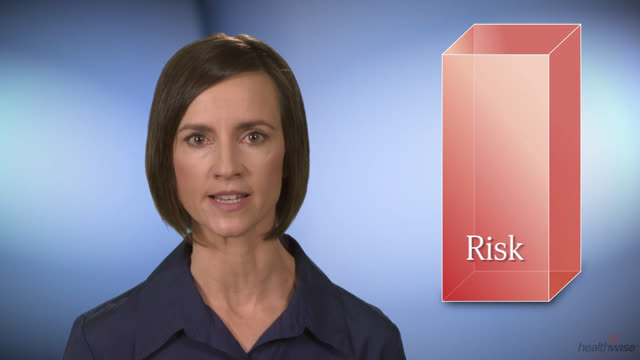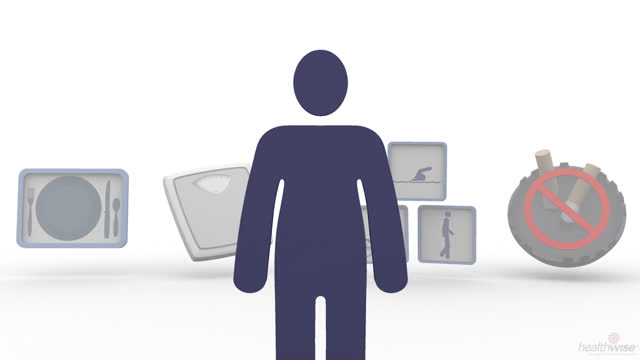Statins
Make an Appointment
Our team is here to help you make an appointment with the specialists that you need.
Statins
About This Medicine
Make sure you know about each of the medicines you take. This includes why you take it, how to take it, what you can expect while you're taking it, and any warnings about the medicine.
The information provided here is general. So be sure to read the information that came with your medicine. If you have any questions or concerns, talk to your pharmacist or doctor.
What are some examples?
Here are some examples of statins. For each item in the list, the generic name is first, followed by any brand names.
- Atorvastatin (Lipitor)
- Pravastatin (Pravachol)
- Simvastatin (Zocor)
This is not a complete list of statins.
Why are statins used?
Statins are used to lower cholesterol and the risk for a heart attack and stroke.
How do they work?
Statins lower the amount of cholesterol in your blood by reducing how much cholesterol your body makes.
Along with lowering cholesterol levels in the blood, statins reduce inflammation around the cholesterol buildup (called a plaque). This may lower the risk that the plaque will break apart and cause a blood clot that can lead to a heart attack or stroke.
What about side effects?
Some people who take statins report that they have more muscle aches. But it's not clear whether these are actually a side effect of statins. A less common issue is diabetes. Statins may slightly raise the risk of diabetes in some people. There are other side effects but they are rare.
General information about side effects
All medicines can cause side effects. Many people don't have side effects. And minor side effects sometimes go away after a while.
But sometimes side effects can be a problem or can be serious.
If you're having problems with side effects, talk to your doctor. Your doctor may be able to lower your dose or change to a different medicine.
Always be sure you get specific information on the medicine you're taking. For a full list of side effects, check the information that came with the medicine you're using. If you have questions, talk to your pharmacist or doctor.
What are some general cautions for all medicines?
- Allergic reactions.
- All medicines can cause a reaction. This can sometimes be an emergency. Before you take any new medicine, tell the doctor or pharmacist about any past allergic reactions you've had.
- Drug interactions.
- Sometimes one medicine may keep another medicine from working well. Or you may get a side effect you didn't expect. Medicines may also interact with certain foods or drinks, like grapefruit juice and alcohol. Some interactions can be dangerous.
- Harm during pregnancy or breastfeeding.
- If you are pregnant, trying to get pregnant, or breastfeeding, ask your doctor or pharmacist if all the medicines you take are safe.
- Other health problems.
- Before taking a medicine, be sure your doctor or pharmacist knows about all your health problems. The medicine for one health problem may affect another health problem.
Always tell your doctor or pharmacist about all the medicines you take. This includes prescription and over-the-counter medicines, vitamins, herbs, and supplements. That information will help prevent serious problems.
Always be sure you get specific information on the medicine you're taking. For a full list of warnings, check the information that came with the medicine you're using. If you have questions, talk to your pharmacist or doctor.
Credits
Current as of: July 31, 2024
Author: Ignite Healthwise, LLC Staff
Clinical Review Board
All Healthwise education is reviewed by a team that includes physicians, nurses, advanced practitioners, registered dieticians, and other healthcare professionals.
Current as of: July 31, 2024
Author: Ignite Healthwise, LLC Staff
Clinical Review Board
All Healthwise education is reviewed by a team that includes physicians, nurses, advanced practitioners, registered dieticians, and other healthcare professionals.
This information does not replace the advice of a doctor. Ignite Healthwise, LLC, disclaims any warranty or liability for your use of this information. Your use of this information means that you agree to the Terms of Use. Learn how we develop our content.
To learn more about Ignite Healthwise, LLC, visit webmdignite.com.
© 2024-2025 Ignite Healthwise, LLC.
This information does not replace the advice of a doctor. Ignite Healthwise, LLC, disclaims any warranty or liability for your use of this information. Your use of this information means that you agree to the Terms of Use. Learn how we develop our content.





